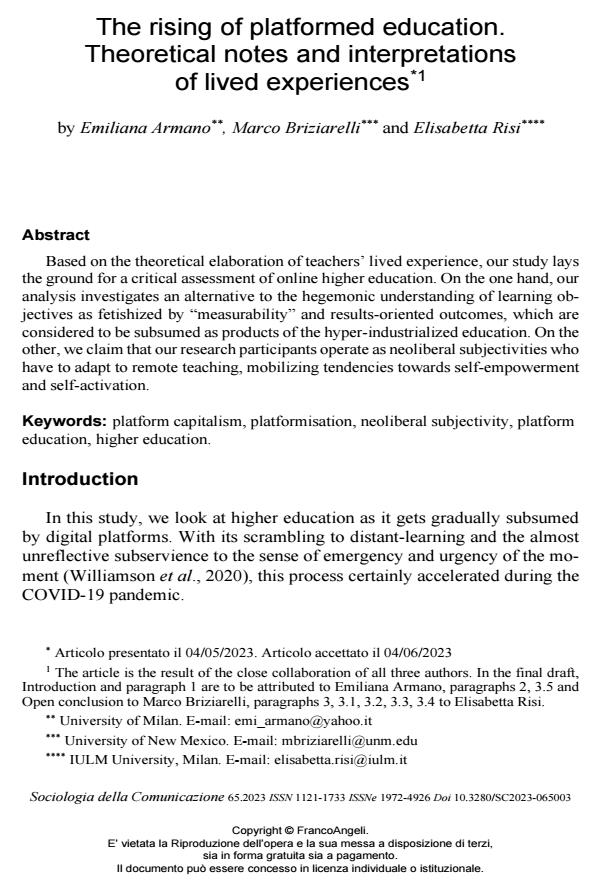The rising of platformed education. Theoretical notes and interpretations of lived experiences
Journal title SOCIOLOGIA DELLA COMUNICAZIONE
Author/s Emiliana Armano, Marco Briziarelli, Elisabetta Risi
Publishing Year 2023 Issue 2023/65
Language English Pages 18 P. 31-48 File size 295 KB
DOI 10.3280/SC2023-065003
DOI is like a bar code for intellectual property: to have more infomation
click here
Below, you can see the article first page
If you want to buy this article in PDF format, you can do it, following the instructions to buy download credits

FrancoAngeli is member of Publishers International Linking Association, Inc (PILA), a not-for-profit association which run the CrossRef service enabling links to and from online scholarly content.
Based on the theoretical elaboration of teachers’ lived experience, our study lays the ground for a critical assessment of online higher education. On the one hand, our analysis investigates an alternative to the hegemonic understanding of learning objectives as fetishized by “measurability” and results-oriented outcomes, which are considered to be subsumed as products of the hyper-industrialized education. On the other, we claim that our research participants operate as neoliberal subjectivities who have to adapt to remote teaching, mobilizing tendencies towards self-empowerment and self-activation.
Keywords: platform capitalism, platformisation, neoliberal subjectivity, platform education, higher education.
- L'emergere dell'istruzione mediata da piattaforme digitali. Critica Delle retoriche dominanti a partire da una ricerca sul campo Emiliana Armano, Marco Briziarelli, Elisabetta Risi, in ECONOMIA E SOCIETÀ REGIONALE 2/2024 pp.143
DOI: 10.3280/ES2024-002011
Emiliana Armano, Marco Briziarelli, Elisabetta Risi, The rising of platformed education. Theoretical notes and interpretations of lived experiences in "SOCIOLOGIA DELLA COMUNICAZIONE " 65/2023, pp 31-48, DOI: 10.3280/SC2023-065003